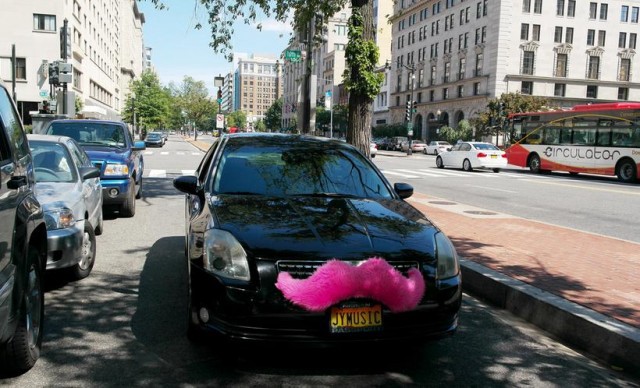Trusting Strangers in the ‘Sharing Economy’

Once, when I was a high school senior in Southern California, an old woman knocked on the window of my car as I was stopped at a red light. I rolled down the passenger side window.
“Can I get a lift?” she asked.
“I … um.”
“I’ll pay you,” she said. “I’m tired and don’t want to walk anymore.”
After a split second in which competing ideas like “what if she’s a an old lady murderer!” and “she could be someone’s sweet old grandmother!” flashed through my mind, I said, “Sure” and clicked the button to unlock the door.
When I told this story to my family after I got home, my mother said, “What, were you crazy!? She could have murdered you! She should have murdered you and taught you a lesson.” My father laughed, and then my mother clarified, “Okay, attempted to murder you.”
So why am I telling this story? Because in our modern day, people get into stranger’s cars and pay them for rides without batting an eye now. Sure, it’s not the same because I wasn’t registered or tracked in some kind of app, but we’ve become more trusting of strangers thanks to companies like Airbnb and Lyft — at least according to Jason Tanz, at Wired:
The sharing economy has come on so quickly and powerfully that regulators and economists are still grappling to understand its impact. But one consequence is already clear: Many of these companies have us engaging in behaviors that would have seemed unthinkably foolhardy as recently as five years ago. We are hopping into strangers’ cars (Lyft, Sidecar, Uber), welcoming them into our spare rooms (Airbnb), dropping our dogs off at their houses (DogVacay, Rover), and eating food in their dining rooms (Feastly). We are letting them rent our cars (RelayRides, Getaround), our boats (Boatbound), our houses (HomeAway), and our power tools (Zilok). We are entrusting complete strangers with our most valuable possessions, our personal experiences — and our very lives. In the process, we are entering a new era of Internet-enabled intimacy.
This is not just an economic breakthrough. It is a cultural one, enabled by a sophisticated series of mechanisms, algorithms, and finely calibrated systems of rewards and punishments. It’s a radical next step for the person-to-person marketplace pioneered by eBay: a set of digital tools that enable and encourage us to trust our fellow human beings.
I’ve never used an app to find a ride home. I’ve never rented an Airbnb apartment. But I think it’s true that if I did use these services, I would trust these strangers without really considering the reasons I shouldn’t trust them (i.e. how experienced a driver is this person?).
I ended up driving the old woman a mile or so where she asked me to drop her off in a busy parking lot. When she began rifling through her bag for some money, I said, “Oh no, I couldn’t accept any money. My mother taught me better than that.”
Update: Also see from this morning Kevin Roose’s excellent column at NYMag.com about why the ‘Sharing Economy’ is about our desperation for jobs in a slow recovery.
Support The Billfold
The Billfold continues to exist thanks to support from our readers. Help us continue to do our work by making a monthly pledge on Patreon or a one-time-only contribution through PayPal.
Comments